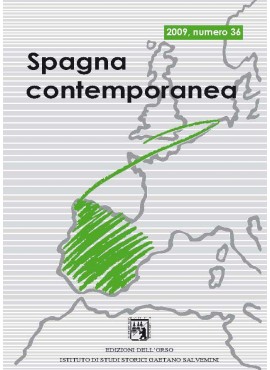Las primeras oposiciones “patrióticas” a cátedras de historia en 1940-1941
Keywords:
patriotic competitive examinations, chairs of history, Falange, Opus Dei, CSIC, exileAbstract
First contests and examinations to chairs of History in 1940-1941
This work studies an aspect of Spanish academia after the Civil War. The competitive examinations to chairs of History allow to test if vacancies were filled by supporters of the new government after the purges, sanctions and exile. We had observed it in other disciplines and it had been reported by the exiled professors. We used files and records from the Archivo General de la Administración and from universities, reports, press, biographies, general histories, doctoral theses, journals, the B.O.E. and the Anuario de legislación y jurisprudencia. We explored the situation of the Faculty of Philosophy using the hierarchy, syllabuses and the orders issued by the Ministry. We also examined which professors held the chairs, the selection process of the examining boards and the candidates. We outlined a biography of the candidates to identify the groups they belonged to in Franco’s regime. We followed the examination process and the board deliberations concerning the appointed candidates, with special focus on those who were best-known or uncommon due to their features. We compared historiographic data with our research outcome and little differences emerged. The examining boards acted with apparent legality and keeping appearances up, although they provided unexpected results such as when, after an examination with five candidates, the board decided not to fill the vacancy. The study confirmed most of our hypotheses and we believe it contributes to throw light on the significance of patriotic merits in competitive examinations.
Received: 12-05-2009
Downloads
Published
Issue
Section
License
Copyright (c) 2009 Istituto di studi storici Gaetano Salvemini, Torino

This work is licensed under a Creative Commons Attribution-NonCommercial-NoDerivatives 4.0 International License.



